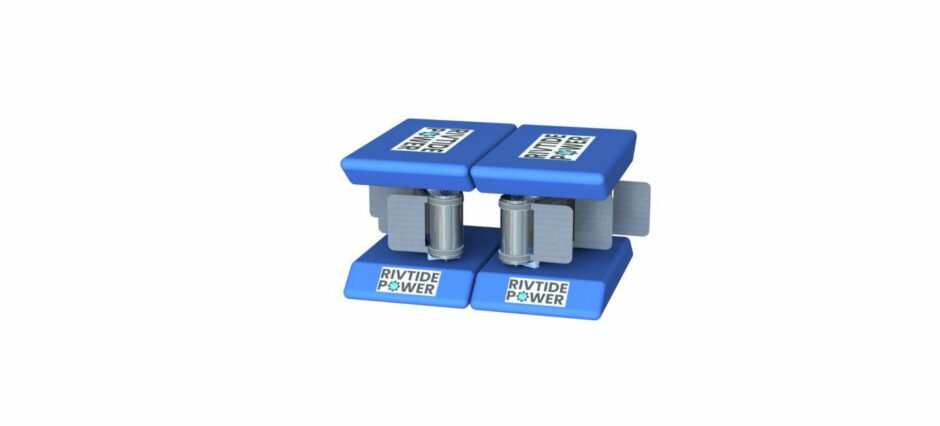
Rivtide Power has been awarded a £100,000 SMART: SCOTLAND feasibility study grant by Scottish Enterprise to further develop its hydro-turbine technology.
Banchory-based Rivtide – part of MWNW Consulting – said the grant would enable it to develop a second-generation prototype of its patented Mass of Water Turbine (MOWT).
MOWT is a hydrokinetic turbine that effectively generates power from slow flowing water such as rivers, tidal estuaries and ocean currents.
The company says the system is “entirely scalable”, capable of providing in the low kilowatts to “multi-megawatts.”
Chaired by Subsea Ecosse founder Mike Wilson, MWNW works in the research, development and deployment of technology for the energy transition. Alongside MOWT, the firm’s website lists other recent developments including systems for subsea buoyancy and a tension leg system for floating offshore wind turbines.
Its Rivtide business built and deployed an initial prototype system in 2021, followed by computational modelling and verification which has led to the design of its Mark 2 system.
The company said the latest SMART: SCOTLAND award gives the business an opportunity to fully develop, manufacture and deploy the latest prototype turbine in a marine environment and prove the feasibility of the turbine system by generating electricity from slow flowing water.
It plans to secure further private investment in the near future, with discussions ongoing with “a number of interested parties”, it said.
The SMART: SCOTLAND feasibility grant is a Scottish Enterprise research and development grant which aims to support projects with “high levels of technical innovation and technical challenge” and with strong commercial potential.
The award enables companies to conduct technical feasibility studies to show how their product or innovation can work in the real world.
“We are delighted to have secured this substantial grant from Scottish Enterprise,” said chairman Mike Wilson.
“It is a great achievement for our team to have our technology recognised in this way by Scottish Enterprise and we are very much looking forward to building and deploying our turbine during this project.”
“The system that we will deploy through this feasibility project is relatively small scale in terms of power output but there are many applications for this scale of turbine. From providing reliable power to a riverside business, to providing predictable renewable power to offshore assets, to producing green hydrogen, MOWT has many uses.
“We have also computationally verified the scalability of the system so we are confident that it will also work on a larger scale.”
‘Complementary’ tidal tech
Mr Wilson said the system could be used as a complementary technology to other tidal turbine systems, with MOWT designed to harness energy effectively from areas of slow flowing water, compared with other larger turbines designed for faster flowing water.
“Scotland has such a rich tidal resource, and we believe that together with other developers, Rivtide Power and our MOWT system can be part of the solution to ensuring that Scotland meets its net zero targets,” he added.
“Looking into the future, we believe that our technology has the potential to power microgrid systems for isolated and island communities and be exported globally. This SMART: SCOTLAND feasibility project is the next step in our journey.”
Rhona Allison, managing director of business growth at Scottish Enterprise, added: “Rivtide Power’s prototype MOWT technology is a great example of the type of innovative project SMART: Scotland feasibility grants were designed to support.
“With its ambitions to promote greater use of renewable electricity from slow-flowing water, generate green hydrogen, scale up for larger production and target energy export markets, Rivtide has the potential to play an important part in Scotland’s net zero transformation.”
Recommended for you

 © Supplied by MWNW Consulting
© Supplied by MWNW Consulting